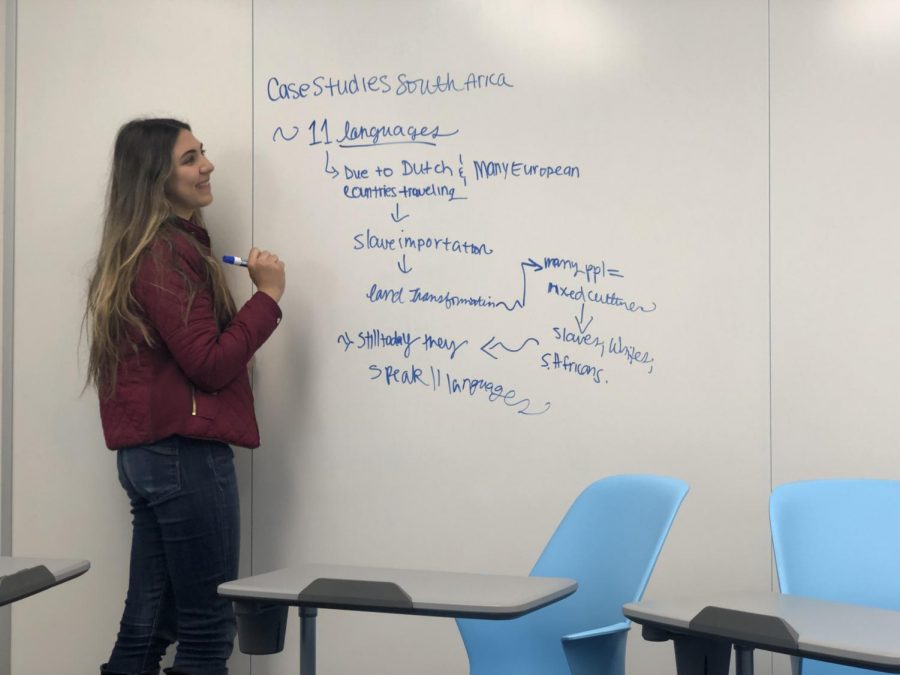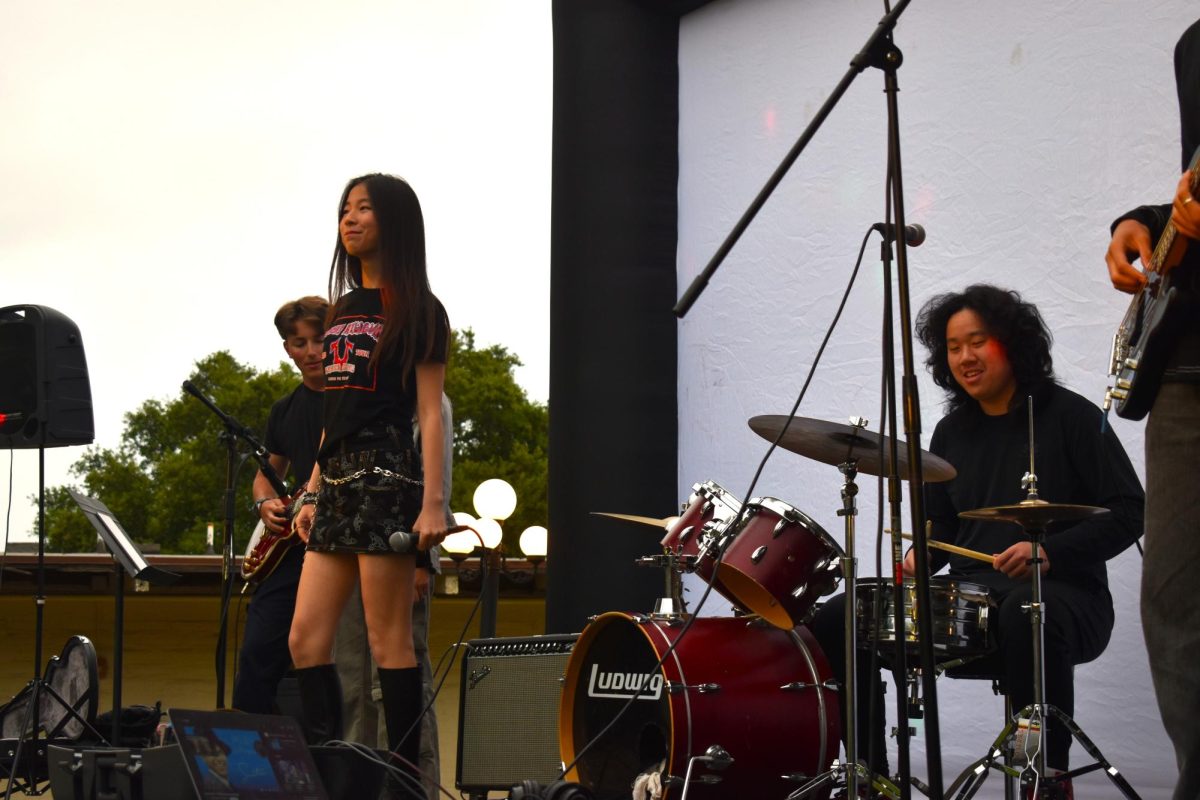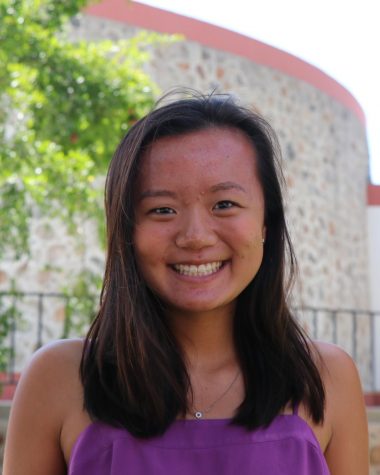Imagine you are a new eleventh grade humanities student. You scan your schedule to find your two new specialized humanities blocks: Advanced Studies Case Studies of South Africa and Honors Economic Thought in the Modern Age. You step into Nelson 102, one of the many twenty-first century classrooms on campus, for your first humanities block and take a seat in one of the colorful swiveling chairs facing the whiteboard-plastered walls. You take part in a Harkness style discussion that incorporates all voices around the room, a mix of both VWS and WSC eleventh and twelfth graders, who debate the politics of colonized South Africa. A teacher sits amongst the circle, listening to the discussion while interjecting only when needed.
With courses ranging from Honors Sports Literature to Advanced Studies Latin America in the 20th Century, all upperclassmen have had nearly three weeks to settle down into their second semester of new humanities classes.
Bill Zheng (‘21) said, “Recently I’ve been thinking more about humanities course electives now that I am closer to becoming a junior. I might join Existentialism because I am interested in talking about philosophy, and I’m also been thinking about Cold War because I am passionate about world politics, especially regarding the post-World War II era. I’m really lucky to go to Webb because they offer so many courses fitted to what I actually want to learn about.”
A major transition for all Webb students occurs from underclassmen to upperclassmen years, as students break away from core curriculum and are given an unparalleled level of opportunity to design their own humanities course schedule tailored to their specific interests.
Most juniors and seniors have completed the four core Webb humanities classes as underclassmen. All freshman follow the first year of this fundamental curriculum: Foundations of Civilization and Fundamentals of Composition. The following year, sophomores engage with the American Studies program: American Society, Past & Present and The American Idea.
Sara Hagiwara (‘20), a student in Honors Creative Writing and Honors Middle Eastern Culture & Conflict, said, “I am really happy with the classes I am currently taking because they’re a perfect balance between history and creative courses. I think it was important for me to take the core classes as a freshman and sophomore to understand the foundations of US and world history as well as writing here at Webb. It’s also nice that I am able to take classes with people I don’t typically interact with.”
Instead of offering typical Advanced Placement (AP) courses, Webb teachers invent their own curriculum specializing in a semester-long study of a specific branch of humanities. Some are more writing-focused, while others are more history-centric, but all provide students with the necessary toolbox to collaborate in college and beyond. Even so, Webb offers preparation and arrangement for the AP Literature exam in May for juniors who are enrolled in at least one advanced studies humanities course per semester.
Dr. Tracy Miller, Director of Studies, said, “Before we made this change back in 2016, the classes were taught by year, so all juniors took both American literature and American history. We also offered the AP classes in both. All seniors took either a fourth-year or AP English class as well as having the choice of several different history options. I think that our mixed classes help seniors resist senior slide because the mixed grade levels keep the level of expectation and the quality of engagement really high.”
Each Webb humanities class falls under one of three levels of course rigor: regular, honors, and advanced studies. During course selection season, students will find out which course load they are recommended for based on their current grades and teacher recommendations.
Linda Wu (‘19) said, “I’ve taken both honors and advanced studies courses at Webb, and they both have very different vibes. An honors class isn’t as in-depth of a study compared to an advanced studies class. Also, people in advanced studies courses are generally a lot more dedicated to the humanities so the environment is a lot more intense, but if you’re willing to devote a lot more office hours visits and more time to homework, the discussions are definitely a lot more intellectually engaging.”
Teachers design their own core curriculum over the summer in preparation for the next year of classes. One example of completely new, only-at-Webb course for this spring semester is Advanced Studies Gothic & Horror Literature and Culture, with four different class sections to cater to the popular student demand. Examples of continuing upperclassmen humanities elective classes include Advanced Studies Faith Narratives of Holy Cities, Honors War Literature & Art, and Literature & Leadership in the Wilderness.
Hilary Barhydt, a member of the humanities department, said, “It’s refreshing to start again with a new semester. For me, to go from advanced studies to honors is a chance to see other faces, dive into a new subject, and hear different perspectives as students interpret literature and art. My spring semester Honors War Literature & Art class is more literary-based compared to my more history-based fall semester Advanced Studies Cold War Era class. I think my background in teaching sophomore American Studies, a combination of literature and art, allows me to use both sides of my training while interacting with my upperclassmen.”
This innovative curriculum is only on its third school year in session, and the courses are constantly changing with every new cycle. Stay tuned for course selection for the 2019-2020 school year in early-March.















